11 Ways Teachers Can Instantly Tell A Kid Was Raised Right By Great Parents
Parents have more control over a student's success than their teachers do.
 Studio Romantic | Shutterstock
Studio Romantic | Shutterstock Positive parenting, characterized by healthy communication, affection, trust, and empathy, is foundational to a child's ability to succeed in school and beyond. Like a study from the Journal of Marriage and Family explains, kids with a healthy upbringing and great parents are not only more likely to do better in school and academic environments, they have less behavioral problems, more emotional intelligence, and better mental health.
While many of these positive parenting styles and behaviors are long-term rituals that set their kids up for success in early development and even adulthood, many of the small ways teachers can instantly tell a kid was raised right by great parents at school remind us that they're also small intentional choices. Kids who behave better in the classroom or commit to positive learning strategies are influenced on a daily basis by positive parenting techniques, many of which can be easier to learn and implement than you might think.
Here are 11 ways teachers can instantly tell a kid was raised right by great parents
1. They own up to mistakes
 Rido | Shutterstock
Rido | Shutterstock
Even if it's taking responsibility for missing an assignment or spilling something on the floor, one of the ways teachers can instantly tell a kid was raised right by great parents is when they're not afraid to admit when they make a mistake. Great parents don't demonize their kids for making mistakes, punishing them or calling them names; instead, they create learning opportunities.
People with low self-esteem and self-worth in adulthood struggle with accountability because they believe mistakes equate to failure, but secure kids with great upbringings know they're necessary for growth.
2. They have manners
 Yuganov Konstantin | Shutterstock
Yuganov Konstantin | Shutterstock
Alongside lacking accountability and poor emotional regulation, many entitled children lack manners and expect other people to constantly prioritize their well-being without any personal work or action. Like experts from Pepperdine University suggest, transactional parenting styles and modeling entitlement are some of the parenting mistakes that lead to this behavior, but it's often teachers at school who notice it in their classrooms.
Saying "please" and "thank you" is one of the ways teachers can instantly tell a kid was raised right by great parents and doesn't have that same kind of entitlement. They were taught empathy, accountability and, most importantly, how to respect other people, even in times of stress, conflict, or anxiety.
3. They comfort and support their classmates
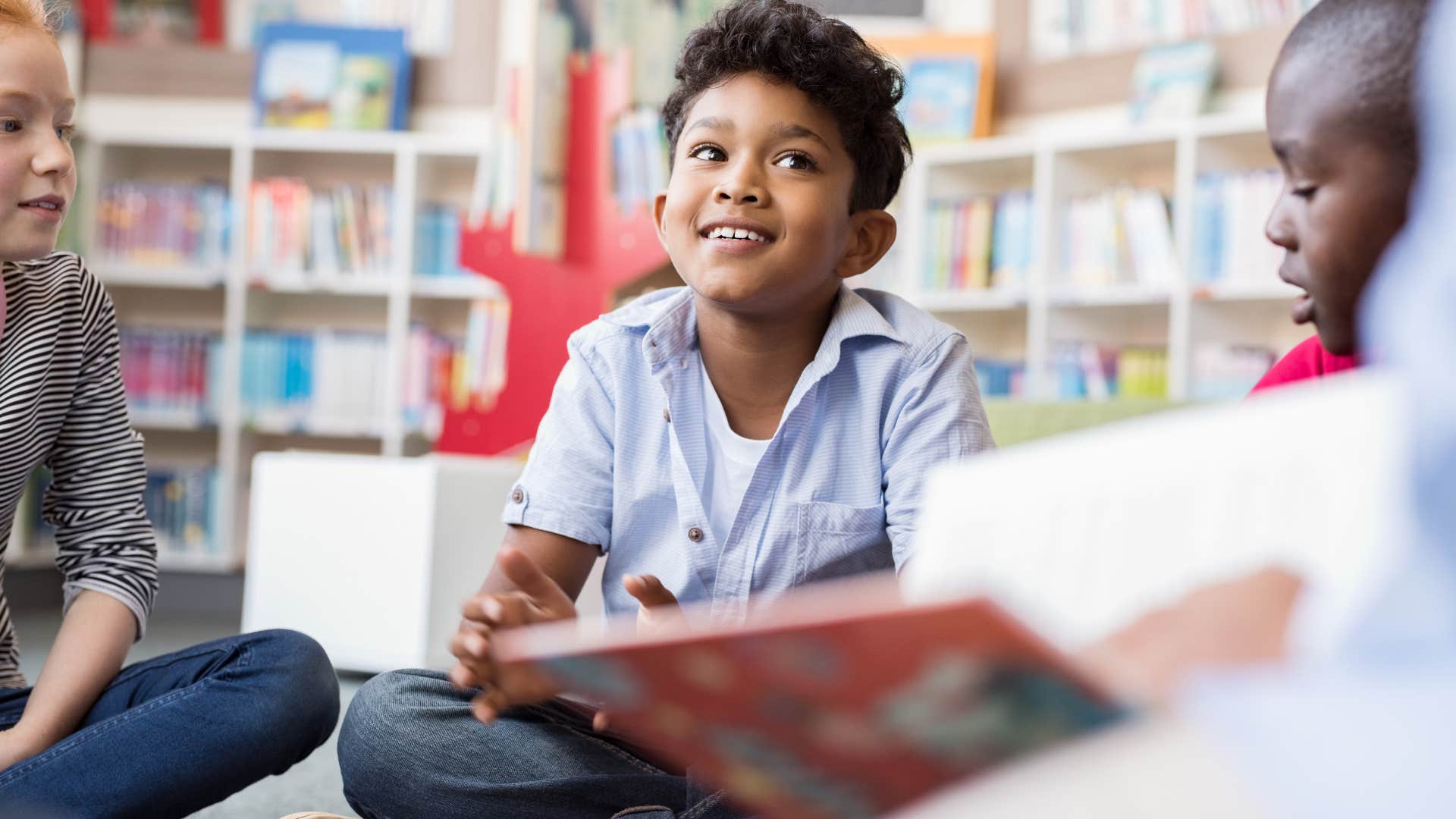 Ground Picture | Shutterstock
Ground Picture | Shutterstock
According to a study from the Journal of Personality and Social Psychology, children with secure attachments to and relationships with their parents tend to boast more empathy. They're not only secure enough to help others and be self-compassionate, they have a kind of social awareness that allows them to see when others are struggling and need support.
It's one of the ways teachers can tell a kid was raised right, because they're not only compassionate and understanding in the face of their own mistakes, they're also supportive, caring, and empathetic to their peers.
4. They take pride in their work
 PeopleImages.com - Yuri A | Shutterstock
PeopleImages.com - Yuri A | Shutterstock
Many kids who struggle with self-esteem, have unmet needs at home, or even deal with mental health concerns struggle with internally motivating and gratifying themselves in academic environments. They're either seeking approval and praise from others or struggling completely with motivation and actually getting things done.
However, teachers can instantly tell a kid was raised right by great parents by the opposite — a child who takes pride in their work, has a strong work ethic, and has the self-confidence to chase goals and celebrate themselves.
By setting achievable goals and being there to support their kids, great parents teach their kids how to celebrate themselves — even in the small ways — and promote a more secure sense of self and worthiness that follows them into the classroom.
5. They don't brag
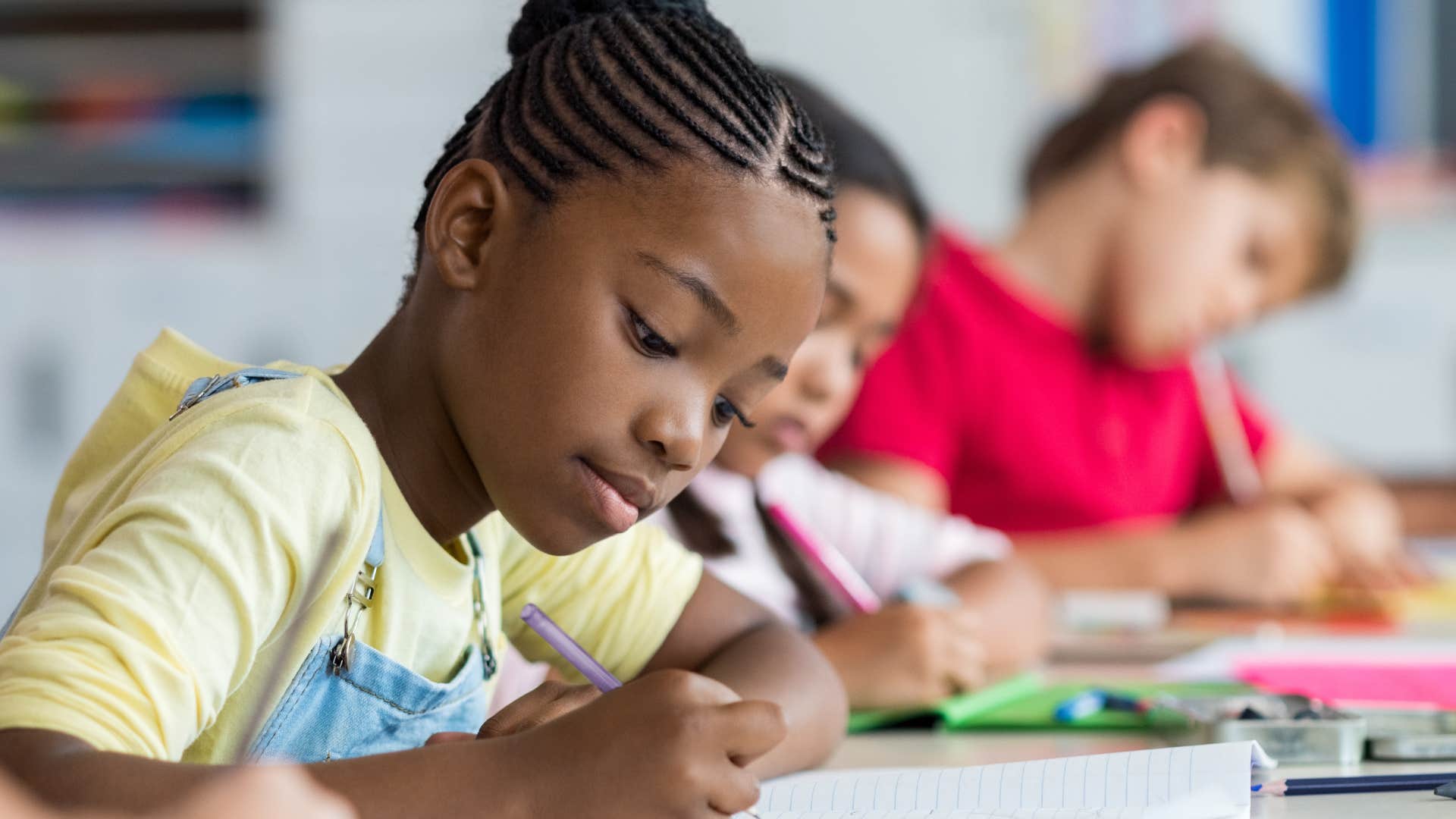 Ground Picture | Shutterstock
Ground Picture | Shutterstock
Even if they're high-achieving or successful, great students raised well by their parents don't gloat about their accomplishments or brag to classmates to maintain a level of misguided superiority. They're internally gratified, so they don't feel the need to constantly seek attention, praise, or validation from others.
Of course, part of the reason why kids boast in the classroom is because they believe it's helpful — they want to feel heard and valued. A study from Developmental Psychology found that many elementary school children perceive over-confident peers to be more likable than those who didn't, so many who bragged about their success had larger friend groups and connections.
However, kids with an innate sense of self-worth, confidence, and gratification — cultivated by their home life and positive upbringing — make friends on their own accord, and don't feel pressured to brag or gloat to achieve connection.
6. They're active listeners
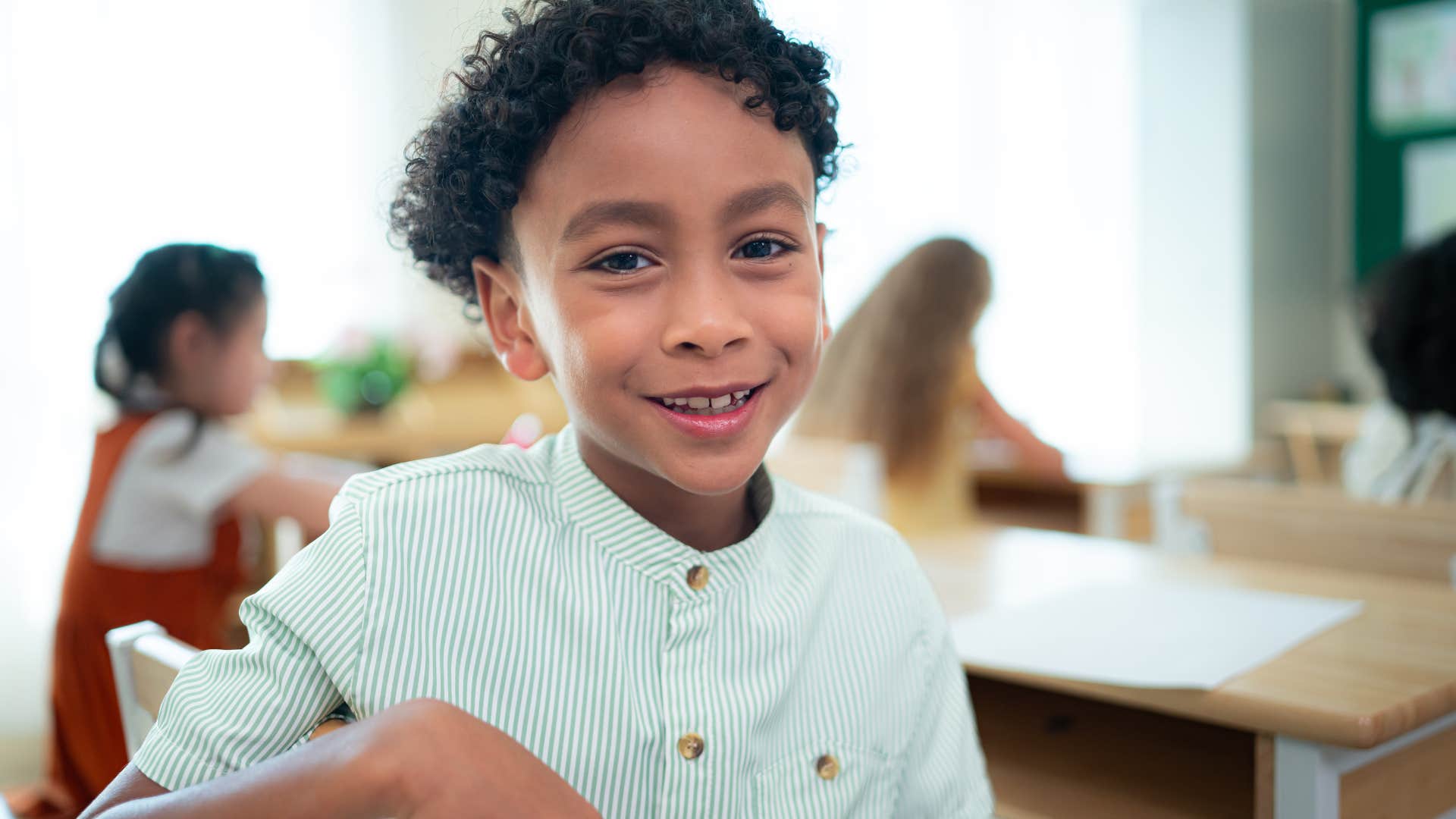 WOSUNAN | Shutterstock
WOSUNAN | Shutterstock
Active listening is a practice that many people learn from their parents at a young age. When their parents make space for their emotions, have open conversations, and include them in conflict resolution, they're more equipped to enter the classroom and truly listen to others, rather than waiting for their turn to talk or brag.
Acceptance and autonomy at home is key — kids who feel supported in speaking their mind also feel empowered to listen to others, because they know how great it feels to be heard and valued. It's one of the ways teachers can instantly tell a kid was raised right by great parents, because they're not only more engaged in the classroom, they also know how to properly engage and express themselves with peers.
7. They know how to regulate their emotions
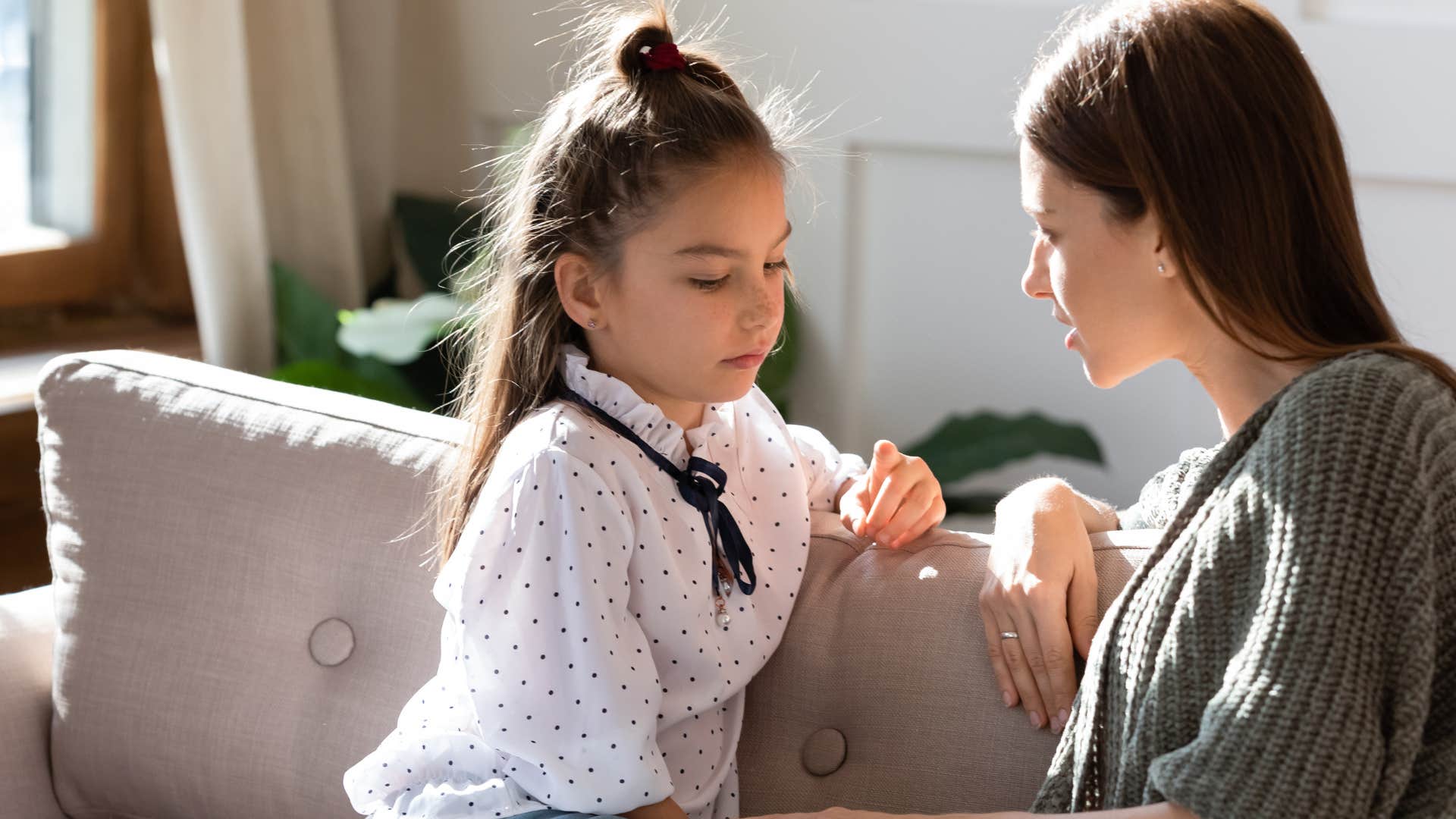 fizkes | Shutterstock
fizkes | Shutterstock
Many children who struggle with mental health concerns or psychiatric problems, largely sparked or mishandled by their parents at home, also struggle to emotionally regulate themselves in the classroom. Whether it's in the face of an argument, a lesson they don't understand, or a "call out" by a teacher, emotionally dysregulated kids tend to isolate themselves and engage in more misbehavior than their counterparts.
Knowing how to regulate their emotions is a skill many kids are taught at home before they ever make it into a classroom. Their parents don't urge them to suppress their feelings or demonize their complex emotions, but rather, craft safe spaces for them to sit with their discomfort and accept it.
That's why emotional regulation in the classroom is one of the ways teachers can instantly tell a kid was raised right by great parents — they have the self-awareness, self-compassion, and confidence to be uncomfortable and embrace change without a tantrum.
8. They respect differences
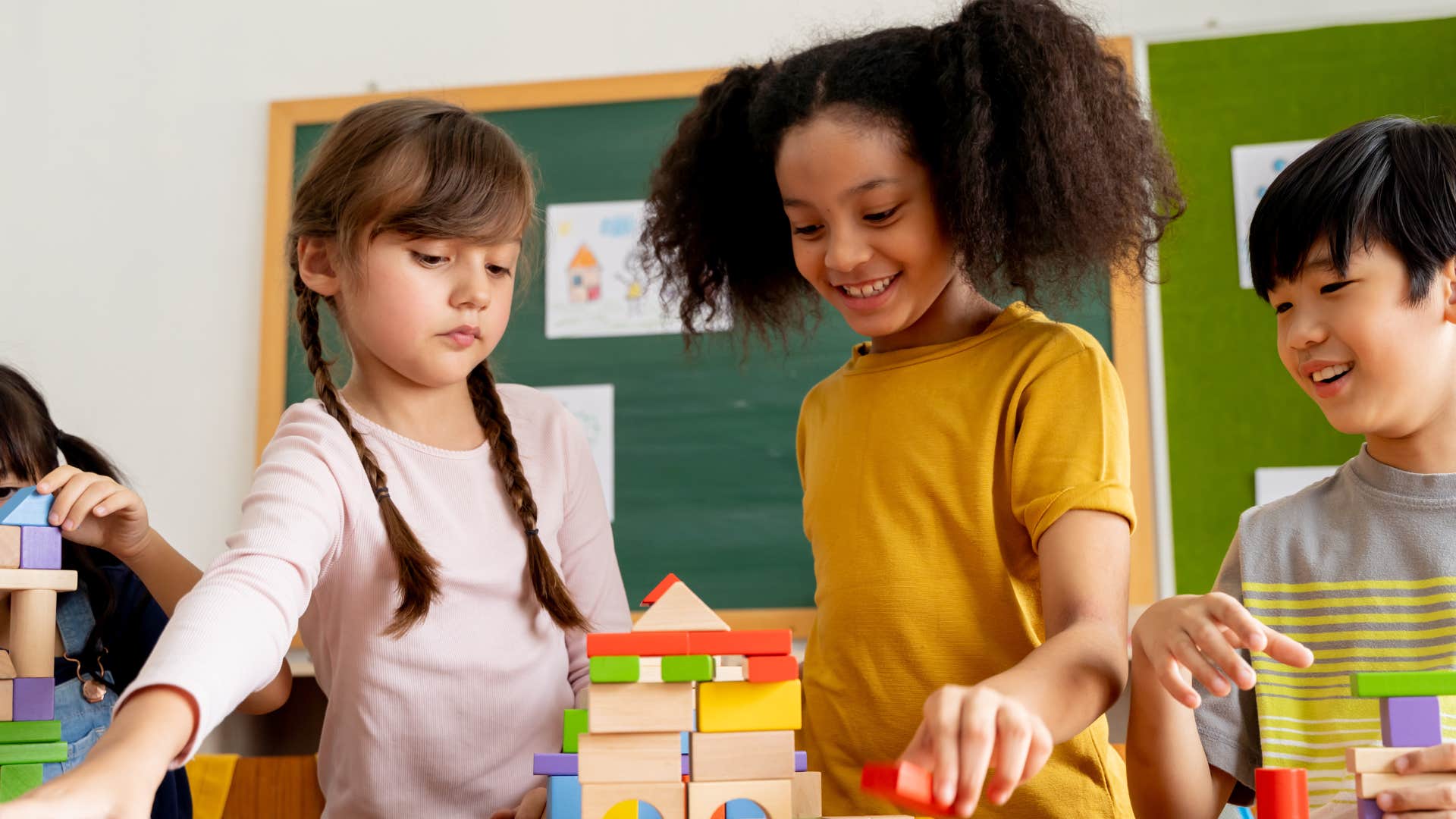 Twinsterphoto | Shutterstock
Twinsterphoto | Shutterstock
When kids are taught to respect themselves and others, regardless of differences and diversity, they're set up to make better connections, achieve more success, and live a happier life, according to experts from the University of Wisconsin-Madison. They're not restricted by prejudice or judgment, but instead open-minded about learning, growing, and connecting with others.
This embrace of diversity and open-mindedness about inclusion is largely sparked by a child's parents early in life — where they not only teach their kids about differences and respecting different people, cultures, perspectives, and appearances, but also empower them to be curious about diversity.
It's one of the ways teachers can instantly tell a kid was raised right by great parents, because they not only seek out more information about things they don't understand from an empathetic perspective, they tend to connect, make friends, and build relationships more than their peers hindered by fear and uncertainty.
9. They do the right things when nobody's watching
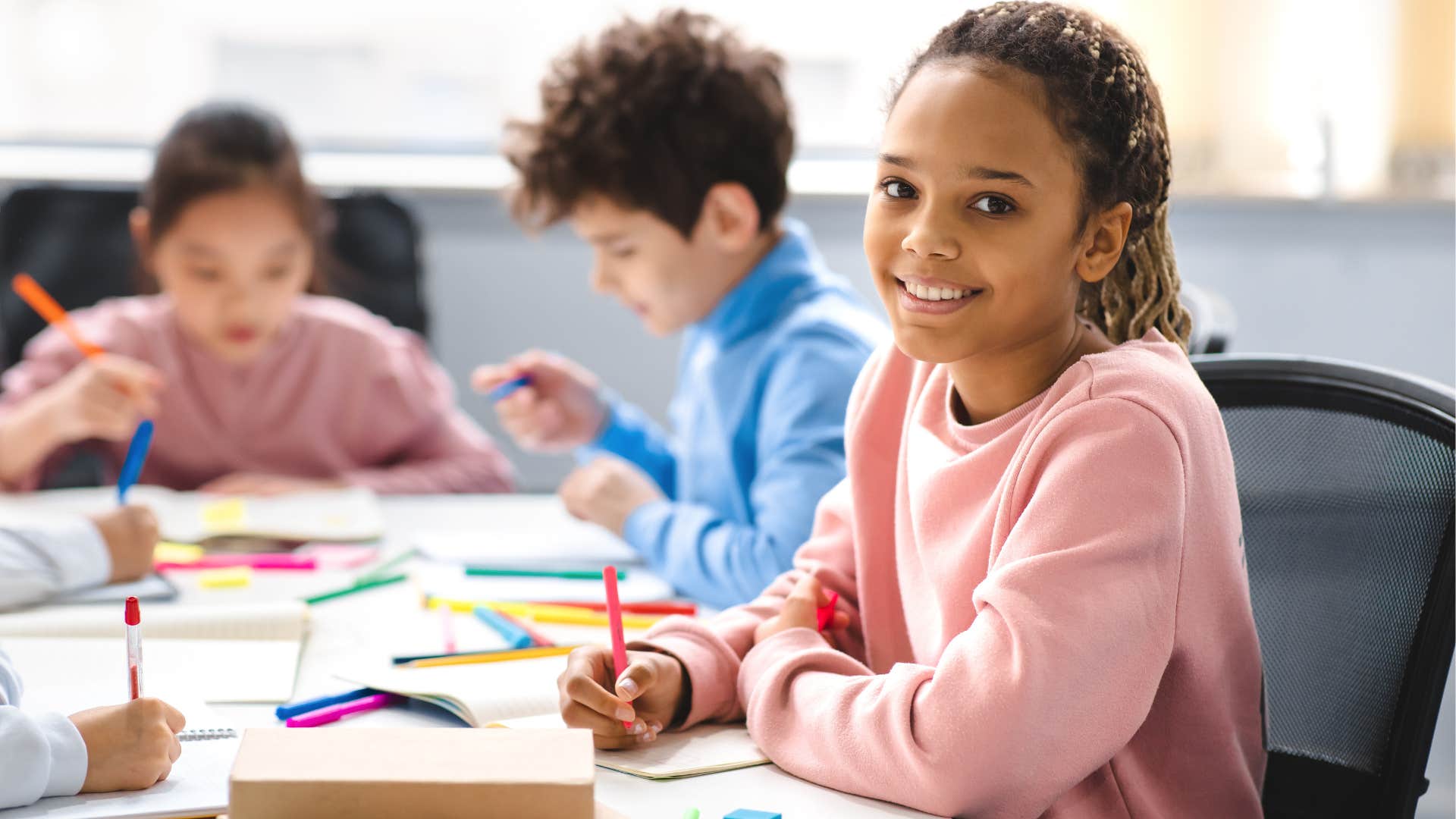 Prostock-studio | Shutterstock
Prostock-studio | Shutterstock
Part of teaching kids about integrity starts with parents who care enough to build and implement a system of values at home, according to the Greater Good Science Center, because — let's be honest — "doing the right thing" doesn't mean the same thing for everyone.
To have integrity means to follow your morals and beliefs, even when nobody is watching, so great parents are tasked with teaching their kids what "the right thing" means before sending them to the classroom.
Teachers notice when kids have integrity, even if they're not literally around, because they also take a stand, advocate for themselves and others, and embody a kind of self-assured attitude in other environments. They're not afraid to speak their mind in uncomfortable situations and even advocate for a peer who can't, so there's no discussion about how they behave behind closed doors.
10. They're patient
 Studio Romantic | Shutterstock
Studio Romantic | Shutterstock
Patience is a practice that's ingrained in many different experiences for kids in the classroom, from actively listening, to supporting struggling classmates, and even maintaining a work ethic amid stress. Patient kids are emotionally regulated ones — they know how to do their work, be present, and interact with others, even if they're uncomfortable or stressed.
Especially in this generation, where everything is digital and kids are pushed into a cycle of seeking instant gratification, patience is a superpower that teachers notice in their kids instantly. According to educational psychologist Michele Borba, great parents know that teaching kids patience starts at home from a young age, especially because entitlement in kids stems from getting everything they want all the time.
In a social world where entertainment, connection, and gratification is instantly available for young kids, great students and kids learn to be patient, rather than expecting to be comfortable and to get what they want all of the time.
11. They're curious
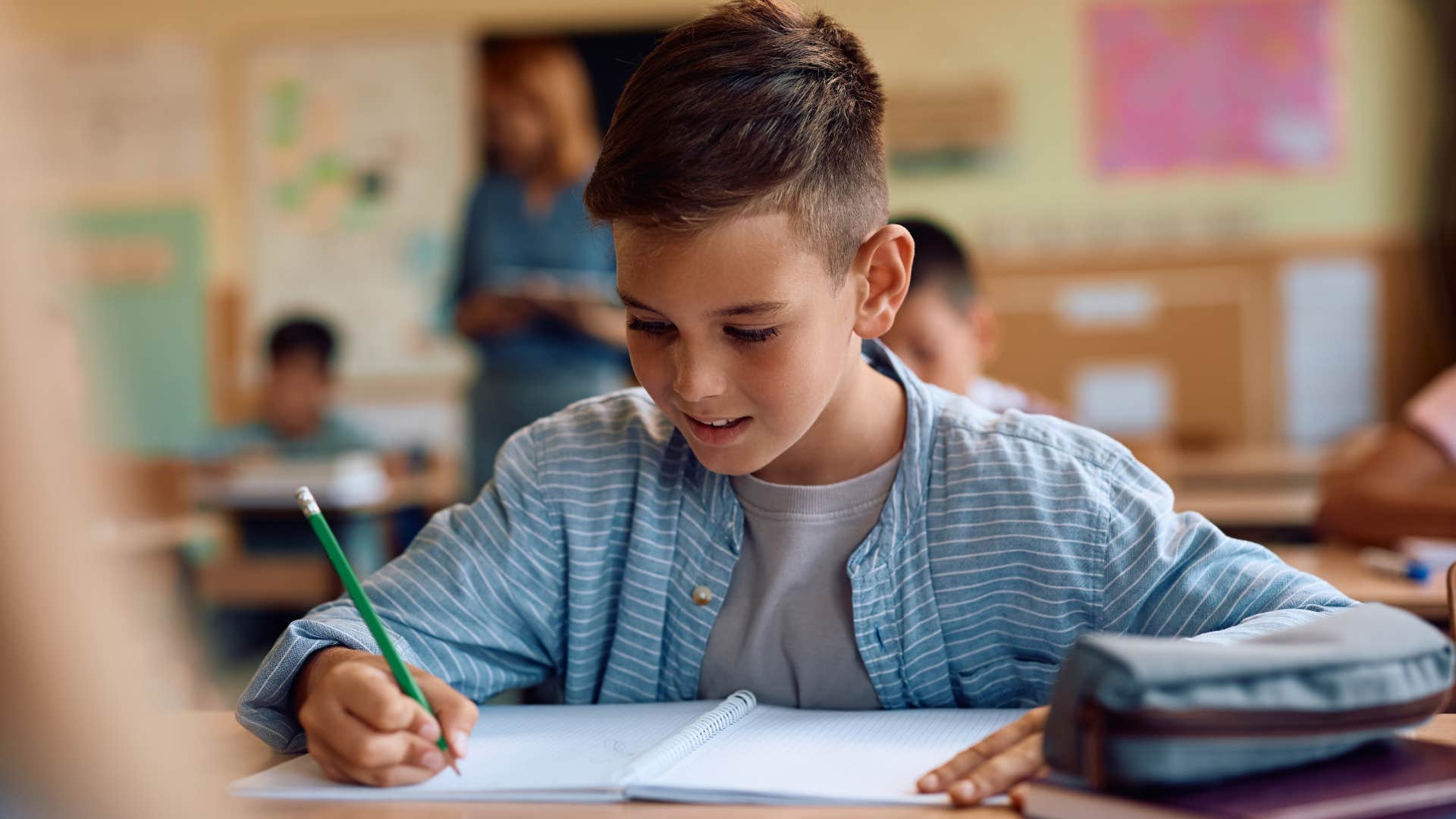 Drazen Zigic | Shutterstock
Drazen Zigic | Shutterstock
Children who are curious — both inside the classroom and outside — tend to perform better academically and socially than those who aren't, according to a study from Current Opinion in Behavioral Sciences. They aren't turned away from trying new things or getting out of their comfort zone because they're often fueled by interest, rather than skill, ability, or motivation.
Great parents who teach their kids to be open-minded, give them space to explore, and support them in trying new things without fears of "failing" early in life promote this kind of life-long curiosity. It's one of the ways teachers can instantly tell a kid was raised right by great parents because they're not afraid of trying something new or experimenting, whether it's an academic lesson or a personal passion.
Zayda Slabbekoorn is a staff writer with a bachelor’s degree in social relations & policy and gender studies who focuses on psychology, relationships, self-help, and human interest stories.

